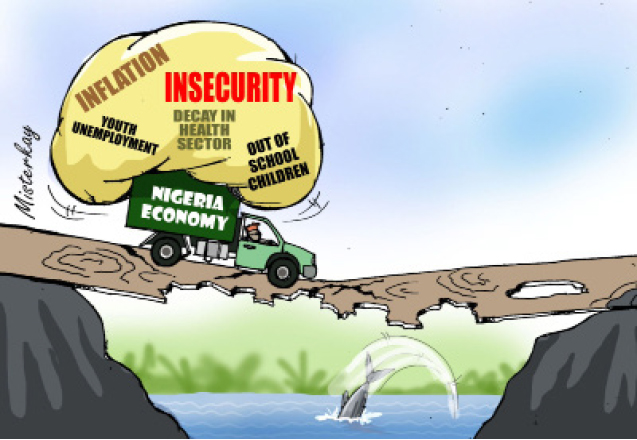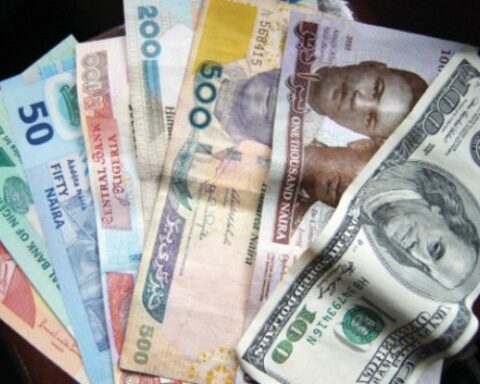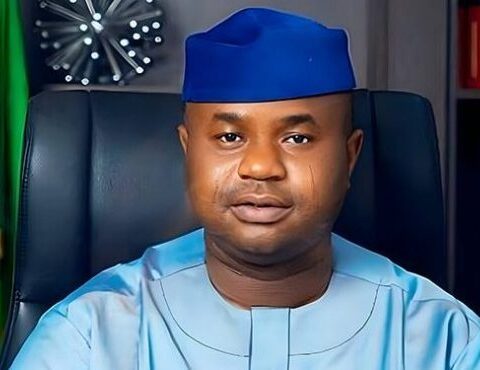The Nobel Prize Lesson: What Nigeria Refuses to Learn
Last Monday, it was announced that Daron Acemoglu, Simon Johnson, and James Robinson had been awarded the Nobel Prize in Economics. They were recognised for explaining why some nations are rich while others remain poor. Their research has shown that societies with weak rules of law and exploitative institutions fail to generate growth or meaningful change. This brings the question: Is this not Nigeria?
Their findings centred on the idea that countries with inclusive institutions—those that protect property rights and uphold the rule of law—experience long-term prosperity. In contrast, nations with extractive institutions, where resources are concentrated in the hands of the elite, suffer from persistently low economic growth. It struck me that their work directly reflects the situation in Nigeria. But if these insights are so clear, why do our leaders seem to ignore them? Why do the policies they adopt continue to steer the nation in the wrong direction?
Join our WhatsApp ChannelPolicies That Suffocate Growth
As these Nobel laureates, along with many other economists, have argued, the institutions and policies put in place by governments determine the fate of nations. Nigeria is a glaring example of how poor policies can cripple an economy. “Governments create their own economic realities,” as Acemoglu famously said. Yet, our leaders seem oblivious to the fact that the policies they design have far-reaching consequences, often harming the very citizens they claim to serve.
A look at the Nigerian economy shows the undeniable impact of bad policies. High interest rates, for instance, make it nearly impossible for businesses to thrive. At 27.25% as of September 2024, investment is suffocated before it even begins. A business owner cannot borrow at such exorbitant rates and expect to turn a profit. This is not just theory—it’s reality. Policies affect the cost of borrowing, the availability of money in circulation, and ultimately the purchasing power of the average Nigerian.
READ ALSO: JP Morgan Seeks Consistent Policies To Attract Investment In Nigeria
A policy regime that limits access to credit, stifles investment, and raises inflation leads to reduced productivity and economic stagnation. And we see the results everywhere: in the closure of businesses, mass layoffs, and the increasing difficulty of ordinary Nigerians to afford basic goods and services. As one market woman in Lagos put it, “Before, I used to buy two bags of rice to sell, now I can barely afford one. Customers complain, but what can I do? Everything is expensive.”
The Connection Between Policies and Poverty
The critical question that emerges is: How did Nigeria get here? The answer lies in the very policies that have been adopted, or rather, imposed, by successive governments. These policies prioritize the interests of the elite over those of the wider population. The Nobel laureates explained that colonialism left a legacy of extractive institutions, but Nigeria’s leaders have built on this foundation, creating policies that serve a select few at the expense of the many.
Consider the issue of taxation. Effective fiscal policy could reduce inequality and stimulate economic growth by creating favourable conditions for investment and wealth creation. But Nigeria’s tax policies disproportionately affect the poor while giving massive breaks to the wealthy. The informal sector, which makes up a significant portion of the economy, remains largely untaxed, leaving the government with fewer resources to address critical social needs. Meanwhile, multinational corporations and local elites benefit from tax incentives that do little to stimulate the broader economy.
As Emeka Chukwuka, a concerned Nigerian businessman, told me, “It’s clear the government doesn’t understand that its policies are strangling the economy. Or maybe they do, but just don’t care.”
A Global Perspective on Policy Reform
The sad reality is that Nigeria is not doomed to failure. Other nations have faced similar challenges but have managed to turn their fortunes around through strategic policy reforms. For instance, the US Tax Cut and Job Act (TCJA) of 2017 led to significant changes in tax policy that spurred job creation and economic growth. Corporate tax rates were slashed, making the US economy more competitive and boosting investments. This is a clear example of how targeted, pro-growth policies can transform an economy.
China, too, offers a lesson with its Belt and Road Initiative (BRI). Through massive investments in infrastructure, energy, and industry, China has created jobs, opened new markets, and driven its economic expansion. The initiative not only boosted China’s own economy but also increased its influence on the global stage.
Nigeria could follow these examples, but it will require more than just adopting the rhetoric of reform. The country needs leaders who understand the connection between policy and economic well-being, and who are willing to make decisions that serve the broader population rather than their own narrow interests.
Reversing the Damage: A Call for Policy Change
The good news is that it’s not too late. Nigeria still has an opportunity to change course, but it must start with a radical shift in policy-making. First, the government must recognise that policies have real, tangible effects on the economy. They are not just abstract concepts debated in academic circles; they shape the lives of every Nigerian.
Second, policies must be designed with the goal of inclusivity. This means creating tax structures that are fair and equitable, lowering interest rates to encourage investment, and fostering an environment where businesses can grow. It also means reforming government institutions to ensure transparency and accountability, so that public funds are used for the benefit of the many, not the few.
Finally, social policies must focus on reducing inequality and promoting economic mobility. Education, healthcare, and social safety nets must be prioritized to give all Nigerians a fair shot at improving their lives. As Acemoglu and his colleagues have shown, countries that create inclusive institutions and policies tend to thrive. Nigeria has the potential to be one of those countries, but only if its leaders are willing to make the hard choices necessary for real change.
The Future of Nigeria Hinges on Policy Choices
The policies a government adopts are like the seeds it plants for the future. For too long, Nigeria has sown the seeds of inequality, inefficiency, and corruption. It is time to plant something different. The Nobel Prize winners have given us the blueprint—now it’s up to our leaders to implement it.
Emmanuel Ochayi is a journalist. He is a graduate of the University of Lagos, School of first choice and the nations pride. Emmanuel is keen on exploring writing angles in different areas, including Business, climate change, politics, Education, and others.















